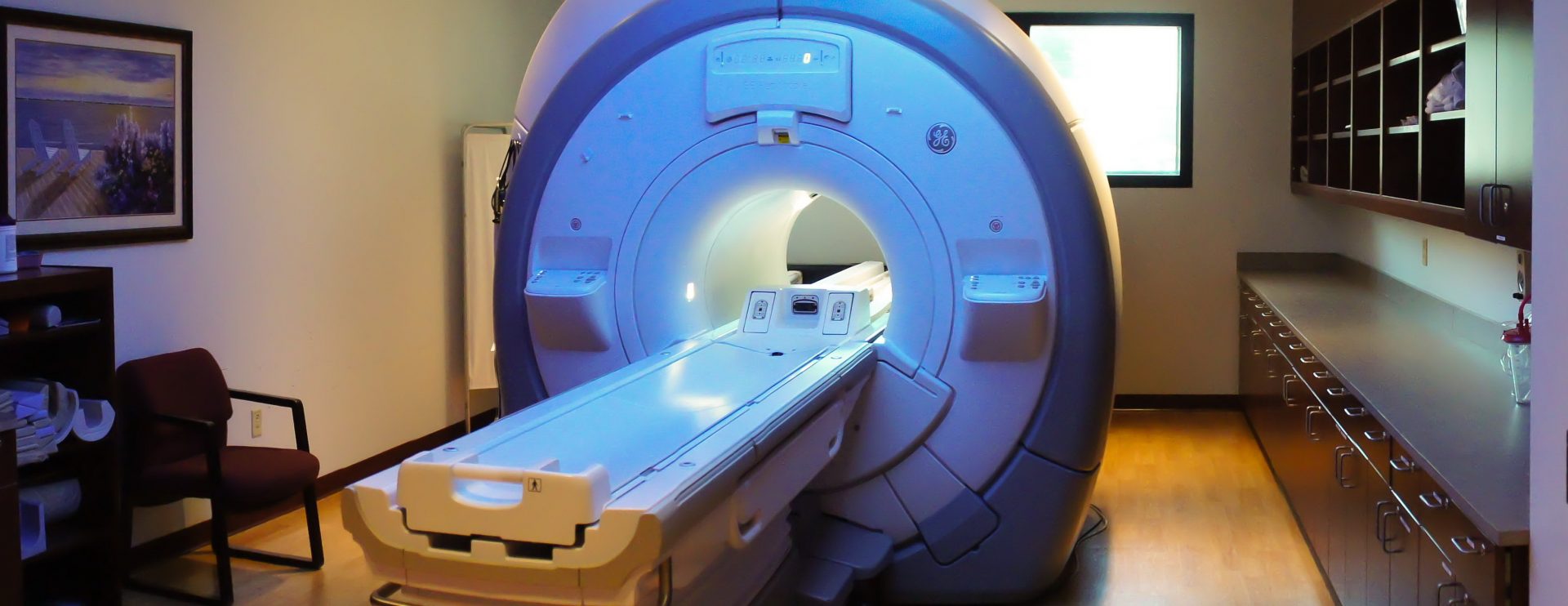 MRI safety awareness week is observed nationally every July 22nd through July 28th, and is critically important to MR technologists, staff and patients. Magnetic Resonance Imaging (MRI) provides one of the most accurate modalities available to obtain detailed images of internal tissues and organs throughout the body. MR imaging uses a strong magnetic field, radio waves and computer technology to generate detailed images of the body without using ionizing radiation such as in x-rays.
MRI safety awareness week is observed nationally every July 22nd through July 28th, and is critically important to MR technologists, staff and patients. Magnetic Resonance Imaging (MRI) provides one of the most accurate modalities available to obtain detailed images of internal tissues and organs throughout the body. MR imaging uses a strong magnetic field, radio waves and computer technology to generate detailed images of the body without using ionizing radiation such as in x-rays.
Patients having an MRI examination experience no pain with no side effects or tissue damage from the electromagnetic fields. While the MRI examination itself is very safe for most patients, there are unseen hazards with a strong magnetic field that is always on. MR technologists must conduct careful patient screening with many questions regarding health conditions, medical devices and any type of foreign object that may be in the body.
MR Safety with Certain Health Conditions
MR technologists and staff must be fully aware of the importance of meticulously following MR safety policies and procedures. Anyone that comes in contact with the magnetic field of an MRI scanner must be thoroughly screened for the following:
- Neurostimulator
- Pacemaker
- Pacing wires
- Implantable cardioverter device “ICD”
- Mechanical pumps such as insulin pumps
- Aneurysm clips
- Surgical implants
- Gastro reflux devices
- Any metallic foreign bodies
- Metal in the eye
- Triggerfish contact lenses
- Cochlear implants
- Bullets
- Shrapnel
- Metallic clothing, jewelry and some tattoos
- Pregnancy
Some of these conditions may be considered safe, others may be conditional while a few are absolute contraindications that would warrant an MRI examination to be unsafe. Any metallic foreign object in the eye is an absolute contraindication and could result in severe eye burn from the magnetic field of an MRI scanner.
Most insulin pumps and gastro reflux devices would also be an absolute contraindication while other conditions such as cochlear implants, spinal fixation hardware and pregnancy should be evaluated on a case-by-case basis to determine the benefits of an MR imaging scan versus the risks.
Some MR imaging examinations are conducted with the use of an added contrast, administered through an IV. A gadolinium contrast used in MR imaging exams does not contain iodine and rarely causes any type of allergic or adverse reaction which can occur with some contrast materials used in CT scans or x-rays. If you are expecting to receive a contrast with your exam, be sure to tell your MR technologist of any liver disease, kidney disease, kidney transplant or kidney failure prior to receiving a gadolinium contrast agent.
MR Imaging Safety Practiced at GWIC
MR imaging safety is practiced every day, hour and minute at GWIC as we are committed to continually providing a safe environment to all our patients. Our experienced and caring staff will help to alleviate any concerns you may have from the minute you arrive. You will be given a thorough health risk assessment from an experienced MR technologist trained to check for any possible contraindications. We may ask you the same question more than once to be sure that we have a thorough understanding of your medical history and any potential risks of MR imaging.
If you have a tendency to feel claustrophobic, please discuss this with our staff as we do offer MR scanners specifically designed for patients with anxiety or claustrophobic tendencies. Earplugs are available as an MRI machine can be loud or if you prefer, we can play some music to help calm your nerves. You will always have an emergency call button to alert a technician of any issues you may encounter during the exam.
Check out our short video on what to expect during your MRI and don’t forget about the Patient Tools section of our website where you can learn more about what to expect, how to prepare, how to access your MRI reports and more. Learn more about how an MRI machine works and access many patient safety resources at RadiologyInfo.org for patients. See this abstract for more information on MRI center accreditation:
MRI SAFETY: APPLYING THE LATEST GUIDELINES FROM THE JOINT COMMISSION
Greater Waterbury Imaging Center places MR imaging safety at the top of our list, along with providing comfortable, friendly and prompt patient service. Our experienced MR technologists meticulously follow a strict set of MR safety procedures. Contact us for more information and schedule your next MR imaging examination.


